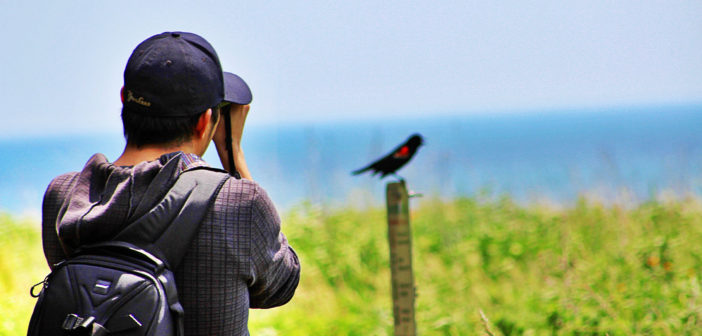On Thursday, the U.S. Department of the Interior released a new report on Americans’ wildlife-related activities over the past five years. Announcing the report, Interior Secretary Ryan Zinke took the opportunity to tout hunting and fishing as a “part of the American heritage” vital to conservation. Yet the data it contains, collected by the U.S. Fish and Wildlife Service, clearly indicate otherwise.
According to the report, hunting has dwindled both in popularity and economic significance over the past five years, while non-violent activities such as observing, feeding, and photographing wildlife have boomed. Specifically, it shows:
- Seven times more Americans watched wild animals than hunted them. 86 million people reported watching wildlife in 2016, while only 11.5 million people reported hunting.
- Since 2011, the number of people who watch wildlife has increased by 14.2 million participants, or 19.8%. The number who hunt has decreased by 2.2 million, or 16%.
- Americans spent three times more money on wildlife watching than on hunting. Wildlife watchers spent $75.9 billion in 2016, while hunters spent only $25.6 billion.
- In terms of annual expenditures over the past five years, the increase in spending by wildlife watchers is more than half again larger than the decrease in spending by hunters. Annual wildlife watching expenditures rose by $16.8 billion, while hunting expenditures fell by $10.7 billion.
Watching more and hunting less, Americans spent a total of $156 billion on wildlife activities in 2016, more than any other time in the past 25 years.
The number of people who went fishing – counted separately from hunting, despite fishes’ comparable sentience to land animals – increased between 2011 and 2016, from 33.1 million anglers to 35.8 million, though fishing expenditures rose a mere 2.4%.
“Hunters and anglers are at the backbone of American conservation,” Zinke claims, “so the more sportsmen and women we have, the better off our wildlife will be.” Such an assertion is unsurprising, given his own avid enthusiasm for hunting and the Trump administration’s history of support for the practice. But his attempt to conflate hunters’ interests with the good of wild animals and their habitats is easily rebutted by his own actions.
During his first day in office, Secretary Zinke signed an order to allow hunting with lead ammunition and fishing with lead tackle on public land, overturning a ban passed near the end of President Obama’s term following years of lobbying by environmental and animal protection groups. Hunters and anglers release an estimated seven thousand tons of lead into the environment every year, causing more than ten million accidental animal poisonings in addition to killing the animals they are meant for. According to a 2012 study by the Fish and Wildlife Service, lead poisoning accounts for some 40% of bald eagle deaths.
Thankfully, despite Zinke’s fervent support for hunting, his own department’s findings undercut pro-hunting propaganda. Hunting can no longer be defended as funding conservation or fostering love of nature, when the peaceful appreciation of wild animals has proven far more popular and lucrative than spilling their blood.
You can read the full preliminary report on the U.S. Fish & Wildlife Service’s website.
Featured image: birder watching Red-winged blackbird. Credit Tim, CC BY 2.0





